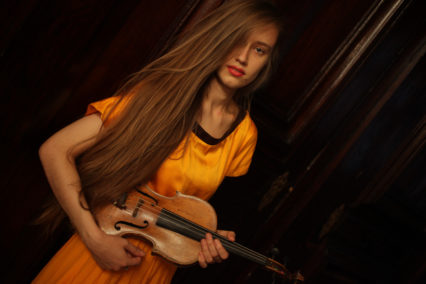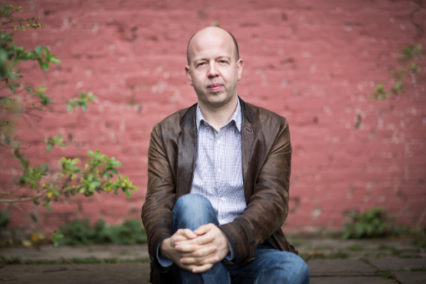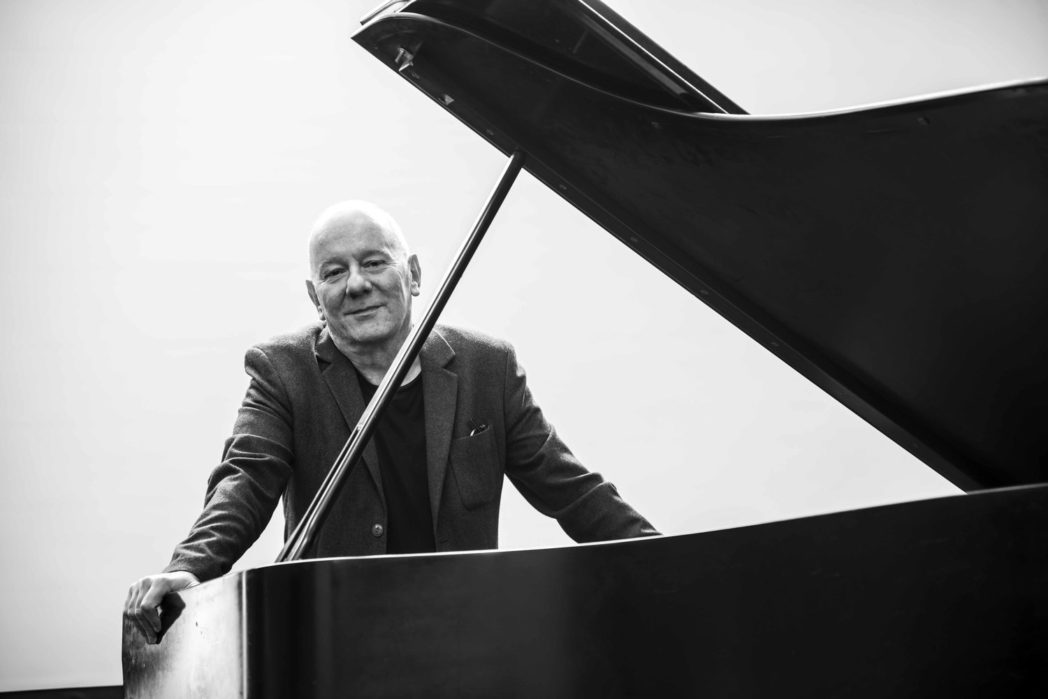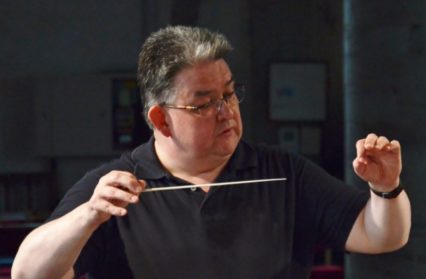David Truslove reviews three concerts of contemporary music at St Andrew’s Church, Presteigne, 27 August 2018.
A tour d’horizon of contemporary music from the Baltic states might be considered an unusual occurrence for a festival in a quiet provincial town with under 3000 residents. But this is Presteigne, renowned nationally for the diversity and quality of its initiatives and recognised for the international reach of its programming. This year was no exception and marked the centenary of independence for Estonia, Latvia and Lithuania.
This six-day artistic feast was enlivened by the presence of Martin Butler, as composer-in-residence, and numerous other figures from the British musical mainstream including Helen Grime, David Matthews and Joseph Phibbs. In addition, commissions from Festival newcomers Cydonie Banting, David Bednall and Gareth Moorcraft brought a frisson of excitement with three premieres.
George Vass, Artistic Director since 1992, devised an imaginative programme which, as usual, demonstrated an unerring capacity for combining the familiar with the novel, and along the way making astute musical connections. Typical in this regard was the first of three events I heard on Monday 27th August (all at St Andrew’s Church) featuring the outstanding Latvian violinist Kristine Balanas. This was a memorial concert for Oliver Knussen (who had died in July) entitled Songs and Reflections and included personal reminiscences from former pupil Freya Waley-Cohen.

It was remarkable in two respects; the first being the soloist’s assured playing which coupled an impeccable technique with a musical intelligence that brought everything vividly to life. Secondly, there was its programmatic symmetry with youthful and late works of Brahms bookending contemporary fare with its own reflected imagery. At the centre was Arvo Pärt’s mesmeric Spiegel im Spiegel (Mirror in the Mirror) where expanding violin lines grew in expressive intensity, as much from her flawless intonation as the sensitivity from Huw Watkins’ gentle piano accompaniment. Its sense of stillness and emotional charge were all the more powerful for coming immediately after Knussen’s Reflection (2016), a morceau de salon written for and dedicated to Tamsin Waley-Cohen and Watkins.

Martin Butler’s Suzanne’s River-Song left its mark too and seemed to echo the figuration patterns of the Pärt. It was Balanas’ playing of Brahms, however, that created the deepest impression in a marvellously virile Sonatensatz in C minor – commanding from the opening bars and highlighting a composer determined to put his individual stamp on a collaborative sonata. Playing of fiery intensity, distant too, characterised this authoritative performance. Turning towards the end of Brahms’ career, she gave a glowing account of his Violin Sonata in G, (Op. 78), although its singular autumnal colouring could have had more differentiation.
A few hours later the Presteigne Festival Ensemble presented another typically innovative programme where Mozart was an isolated presence amongst much recent composition. His Quintet in E flat for piano and wind instruments (K452), made an especially pleasing appetizer not least owing to the rarity of its performances (due to its unusual combination of piano, oboe, clarinet, bassoon and horn) and rendered here with silky-smooth wind playing.
Of the various instrumental pieces, it was Butler’s Préludes inégales which had the widest appeal. Alongside traces of Bach in the first of its three movements (all originally conceived as improvisations), other wide-ranging influences included jazz funk and the American pianists Bill Evans and Dave Brubeck.
Taking centre stage at Presteigne was the world premiere of Dolly shot, for piano and wind instruments, by rising Welsh composer Gareth Moorcraft (born 1990). It’s an attractive and well-crafted work that derives its title from the tracking shot of a film camera as it moves around its subject and prompted the juxtaposition of its musical material at different tempi – a concept that also brought ear-catching sonorities.

After short works by Emma-Ruth Richards (born 1985) and Watkins, the evening ended with Butler’s Dirty Beasts. Using children’s verses by Roald Dahl, this grotesquely comic work for piano, wind quintet and narrator found acclaim soon after its first appearance thirty years ago. Based on this splendid performance (with Sally Ripley as a characterful narrator) there’s no danger of it losing any of its popularity.
A brief interlude and there followed the day’s final event – Queen of Heaven – a Marian-themed offering from the Choir of Royal Holloway College under its conductor Rupert Gough. As ever, this adventurous programme made no concessions to familiarity and, like a tasting menu, some items were more memorable than others. But amongst the polished singing it became clear why David Bednall is now a significant presence on the choral scene. His Regina caeli was given a suitably energetic response by the Choir who I found, at times, hard to believe were not a professional ensemble. Bednall’s new work certainly stood up well to surrounding pieces by Ola Gjeilo (Ave gloriosum), Cecilia McDowall (Regina caeli) and Lithuanian Vytautas Miškinis (Ave Maria 11).
Two pieces created lasting impressions; Rihards Dubra’s O Star of the Ocean and Gabriel Jackson’s Ave Regina caelorum. The first was a tour-de-force of writing for female voices to which Gough’s singers responded with characteristic confidence, its solo and full ensemble passages dispatched with great refinement. The second was enlivened by the unconventional addition of Ant Law’s amplified guitar which burst in on sublime choral writing to dramatic effect. By the end I was reconciled to its incongruity and found myself wanting to hear more. In one sense I did – an encore from Michael Berkeley whose Farewell formed a fitting and beautiful end to a musically rewarding day.
Header photo: Presteigne Festival artistic director, conductor George Vass
You might also like…
David Truslove reviews a timely release from Resonus Classics – a BBC National Orchestra of Wales recording of Jean Sibelius: Violin Concerto, Op. 47 & Humoresques, Opp. 87 & 89, featuring Fenella Humphreys and George Vass.
David Truslove is a regular contributor to Wales Arts Review.











